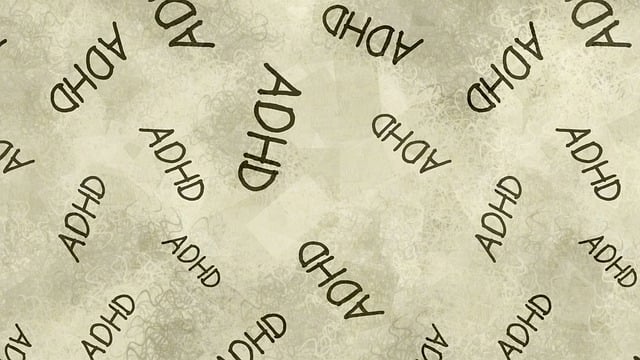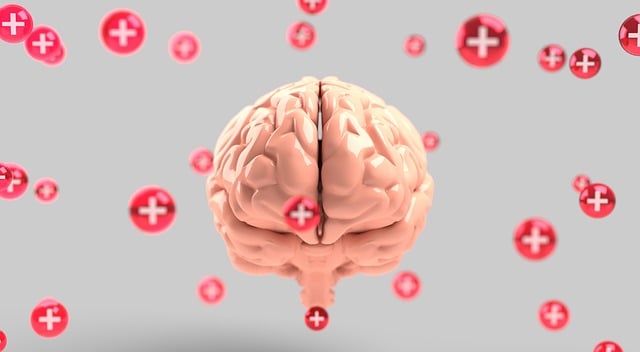In Englewood's vibrant Russian-speaking communities, cultural sensitivity is crucial for effective mental health education programs. Overcoming language and cultural barriers is essential to addressing unmet needs among anxiety, depression, and trauma sufferers. Tailoring initiatives with empathy-building strategies, self-care routines aligned with cultural practices, and trauma support services ensures safe spaces for help-seeking. Englewood Russian Speaking Therapy's creative approach integrates holistic methods like mindfulness and burnout prevention for diverse learning styles. Evidence-based practices, stigma reduction, and resilience building in workshops improve outcomes while reducing cultural barriers to therapy. Measuring program impact through robust evaluations and feedback tracks both individual mental health improvements and societal benefits, including enhanced access to culturally tailored services.
Englewood, a diverse community with a significant Russian-speaking population, presents unique challenges in mental health education. This article explores the design of an effective program tailored to this specific demographic. By addressing cultural sensitivity and identifying common mental health concerns among Russian speakers, we propose strategies for engaging educational sessions. We discuss incorporating evidence-based practices in Russian-language workshops and emphasize the importance of evaluating outcomes through rigorous measurement tools, ensuring the success of Englewood Russian Speaking Therapy programs.
- Understanding Cultural Sensitivity in Mental Health Education for Russian-Speaking Communities in Englewood
- Identifying Key Areas for Focus: Common Mental Health Concerns Among Russian Speakers
- Designing Engaging and Effective Educational Programs: Strategies for Success
- Incorporating Evidence-Based Practices into Russian-Language Mental Health Workshops
- Measuring Impact and Outcomes: Evaluating the Effectiveness of Englewood Russian Speaking Therapy Programs
Understanding Cultural Sensitivity in Mental Health Education for Russian-Speaking Communities in Englewood

In Englewood’s diverse communities, particularly among the Russian-speaking population, cultural sensitivity is a cornerstone in designing effective mental health education programs. Understanding the unique cultural nuances and historical contexts is crucial to providing relevant and accessible therapy services. Many Russian-speaking individuals may face barriers when seeking mental health support due to language differences, cultural stigma, or past traumatic experiences. Thus, tailoring educational initiatives to address these specific needs is essential.
Englewood’s Russian-speaking communities have diverse backgrounds, with many having experienced cultural shifts and traumas. Incorporating empathy-building strategies into mental health education can foster a supportive environment. By teaching self-care routines tailored to their cultural practices, these programs empower individuals to prioritize their mental well-being while respecting their heritage. Additionally, offering trauma support services sensitive to cultural differences ensures that those with traumatic histories receive the necessary help in a safe and understanding space.
Identifying Key Areas for Focus: Common Mental Health Concerns Among Russian Speakers

In designing a mental health education program tailored to Russian speakers in Englewood, it’s crucial to identify and address specific, prevalent concerns within this community. Research indicates that Russian-speaking individuals often face unique barriers to accessing mental health services, leading to unmet needs. Common mental health challenges among this demographic include anxiety, depression, and cultural or language-related trauma, which can be exacerbated by feelings of isolation and limited access to culturally sensitive support.
For example, Englewood’s Russian-speaking community may benefit from programs that offer Social Skills Training to foster connections and combat loneliness, a key factor in mental well-being. Additionally, focusing on Emotional Intelligence development can empower individuals to recognize and manage their emotions effectively, particularly those who have experienced cultural or linguistic barriers to expressing themselves. Moreover, incorporating Depression Prevention strategies into the curriculum can be instrumental in early intervention and building resilience among Russian speakers, ensuring they receive the necessary tools for a healthier mind.
Designing Engaging and Effective Educational Programs: Strategies for Success

Designing engaging and effective educational programs for mental health is an art that combines creativity with a deep understanding of human behavior and psychology. At Englewood Russian Speaking Therapy, we believe in employing diverse strategies to cater to varied learning styles and ensure maximum impact. One proven approach involves incorporating self-awareness exercises into the curriculum. These activities encourage participants to introspect, fostering a deeper connection with their emotions and thoughts. By enhancing self-awareness, individuals become more attuned to their mental health needs, enabling them to proactively manage stress and challenges.
Furthermore, integrating self-care practices is essential for sustainable well-being. Educational programs should teach practical self-care techniques such as mindfulness meditation, regular exercise, and healthy eating habits. These strategies not only promote individual resilience but also foster a sense of agency in managing one’s mental health. Additionally, including burnout prevention strategies for healthcare providers is crucial given the demanding nature of their work. Programs can offer insights into work-life balance, stress management techniques, and resilience-building activities to help professionals avoid burnout and maintain optimal performance.
Incorporating Evidence-Based Practices into Russian-Language Mental Health Workshops

Incorporating evidence-based practices into Russian-language mental health workshops is a strategic approach to enhancing accessibility and effectiveness for Englewood’s Russian-speaking community. These practices, such as stigma reduction efforts and resilience building, aim to create safe spaces where participants can learn and share experiences. By integrating compassion cultivation practices, the workshops foster an environment of understanding and support, addressing the unique challenges faced by individuals within this linguistic group.
Tailoring mental health education to cultural contexts is vital. Russian-language workshops specifically address barriers related to language and cultural nuances, ensuring that essential information resonates with attendees. This inclusive design invites participants to engage in meaningful discussions, share personal insights, and develop coping strategies that align with their experiences. Consequently, these workshops contribute to the broader goal of improving mental health outcomes while reducing the stigma surrounding mental illness among Russian-speaking populations.
Measuring Impact and Outcomes: Evaluating the Effectiveness of Englewood Russian Speaking Therapy Programs

Measuring the impact and outcomes of Englewood Russian Speaking Therapy programs is a critical step in evaluating their effectiveness. By employing robust evaluation methods, we can assess not only the direct effects on individuals’ mental health but also the broader implications for healthcare systems. This includes examining improvements in patient well-being, reduction in symptoms, and enhanced access to culturally tailored therapy services.
Incorporating feedback from both clients and healthcare providers, such as those participating in Englewood Russian Speaking Therapy and related Cultural Competency Training like Burnout Prevention Strategies for Healthcare Providers, allows for a comprehensive understanding of program success. Additionally, tracking changes in public awareness campaigns development can highlight the broader societal impact, fostering more inclusive mental health support and services.
Mental health education programs tailored for Russian-speaking communities in Englewood must address cultural sensitivity, common mental health concerns, and engage participants through innovative strategies. Incorporating evidence-based practices and effectively evaluating outcomes are key to enhancing the impact of these initiatives, ultimately fostering improved mental well-being among Englewood’s Russian-speaking residents. The successful design and implementation of these programs can significantly contribute to the overall mental health landscape in the community, ensuring that no one is left behind.














